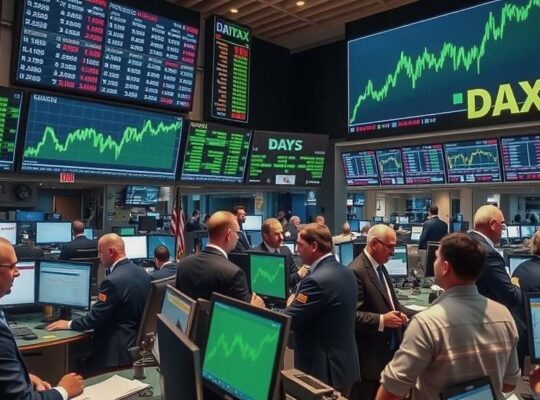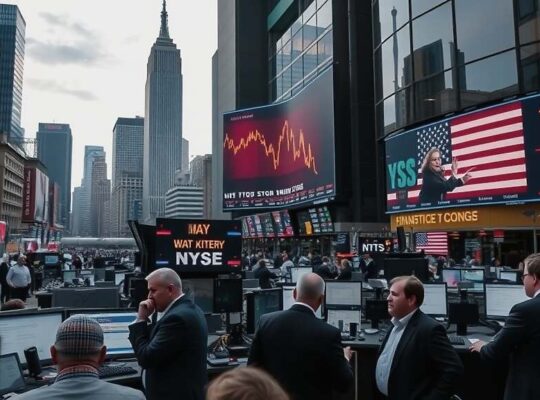German equity markets experienced a modest gain at the start of the trading week, with the DAX index closing at 24,308 points, a 0.3% increase from the previous day. However, underlying investor sentiment reveals a growing disconnect between market optimism and the realities facing German businesses, raising questions about the sustainability of the current rally.
Christine Romar, Head of Europe at CMC Markets, highlighted the paradoxical situation: “The hope for a cyclical revival within German companies remains, yet corporate leaders find it increasingly difficult to fully embrace this prospect”. This sentiment, she contends, is reflected in the recently released ifo Business Climate Index, which, despite positive signals, failed to inspire a surge in confidence.
While the DAX remains relatively close – just over 2% – from its all-time high, a concerning lack of dynamism is evident. Romar argues this sluggishness underscores inherent vulnerabilities despite apparent progress in the US-China trade dispute. The reliance on mere hope, rather than solid economic fundamentals, is proving insufficient to sustain investor enthusiasm.
The fragility of any potential trade deal remains a critical factor. While diplomatic progress is encouraging, the unpredictable nature of US trade policy, particularly under the leadership of Donald Trump, necessitates caution. “The success of these negotiations isn’t guaranteed until the agreement is formally ratified” Romar emphasized, highlighting the looming presidential meeting as a significant uncertainty for investors. This pervasive doubt is making it progressively challenging for investors to justify purchases based solely on speculative hope.
The euro strengthened slightly to $1.1638 against the dollar, showcasing some reprieve in the currency markets. Conversely, gold prices tumbled significantly, falling to $3,990 per fine ounce (-2.3%), reflecting a shift away from safe-haven assets as risk appetite tentatively increased. Brent crude oil prices edged upward to $65.98 per barrel, a marginal increase attributed largely to broader market sentiment.
The disconnect between market performance and the actual economic health of German firms signals a potential vulnerability that policymakers and investors must carefully monitor. The reliance on trade deal optimism alone may not be enough to propel the DAX to new heights, prompting a deeper introspection on the foundations of Germany’s economic resilience.












